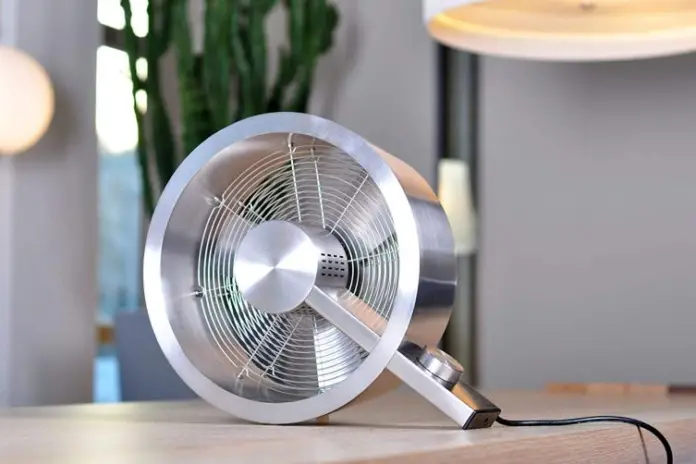
You may have heard through the grapevine to use a humidifier and fan together, that the two compliment each other pretty well. But why? What do the two do so well that using a humidifier with a fan is a relatively favorable idea? Well, it all has to do with spreading the effects of the humidifier.
We’ll go over what each product is meant to accomplish and how the two can help each other, while also dispelling any misconceptions.
What Does a Humidifier Do?
Humidity can be absolutely horrible in the summer. Ever go outside when the temperature was 70 degrees fahrenheit, but it feels like 90? That’s because the level of humidity is higher. However, humidity isn’t all bad and a small amount is actually necessary.
On a very dry day, next to no humidity, you can actually experience nosebleeds. The dry air dries out the nasal membrane in your nose, causing it to crack and ultimately bleed.
A humidifier can add a small amount of moisture into the air by filling it with water. This can obviously help prevent nosebleeds without raising the temperature of your house to a deathly high degree.
A Common Misconception On Fans
The most common misconception about fans is that it dries out the air. This is simply not true. Fans don’t work that way, and only serve to displace the air around it. Air moves through the fan and it blows it out the other way. In other words, it does not affect humidity in any shape or form. You won’t get a dry room using a fan. However, that isn’t the entire story.
If you place a fan in your room, with the windows closed, the air that gets circulated—that includes the humidity—just gets passed around and around. But what if you opened windows? Then the game changes.
Now let’s say your room is really humid, but the outside is dry. If you were to place a fan near the window, the fan would blow that dry air into your humid room and ultimately cool it off.
This is the effect of dry air meeting humidity, not the fan itself; the fan did nothing but bring the two together. The two would have done that naturally had the window been open without the fan, the fan just sped up the process.
So what gives? Should the two be used together?
Why Humidifiers and Fans Work Together, Not Against One Another
So, now you know that humidifiers add moisture to the air and fans don’t dry the air out. Fans only serve to move the available air around. And no, they do not cancel each other out. Here’s why they can work together.
A humidifier admittedly doesn’t spread moisture very far, only within the general area of the room it’s in. If you were hoping to spread the humidity throughout the house, you might consider buying several, but don’t bother.
Instead, use a fan. Remember: fans displace air, not dry it out. By placing a fan near the humidifier, you can create a current of water vapor that reaches further throughout the house. With that said, the kind of fan you use can always have a different impact.
For example, table fans are good for dispersing moisture around your room. Larger fans, ones that stand on the floor, can be useful for sending humidity around the house.
Window fans can be helpful if you don’t have a humidifier and are relying on the humidity outside. However, don’t use a window fan if it’s dry outside, but you have a humidifier running inside; it cancels the two out.
Ceiling fans are way better at circulating moist air than table fans, and provide better overall coverage.
Bottom Line
In conclusion, fans do not dry out the air. It might dry your mouth out when you’re talking into it, but as far as humidity levels are concerned it doesn’t do squat. They are best served as air control.
By teaming it up with a humidifier on dry days, a fan—table fan, ceiling fan, window fan, what have you—can be a little helper by spreading the water vapor the humidifier releases into the air.
If you happen to be stuffed up and congested, adding Vicks Vaposteam to your humidifier can help break up mucus. However, having the humidifier too close can cause the eyes to water.
Consider placing the humidifier in a hallway and have a fan blow the vapors into the room, but into your face. In fact, Vicks warns against blowing VapoSteam straight into the face.
